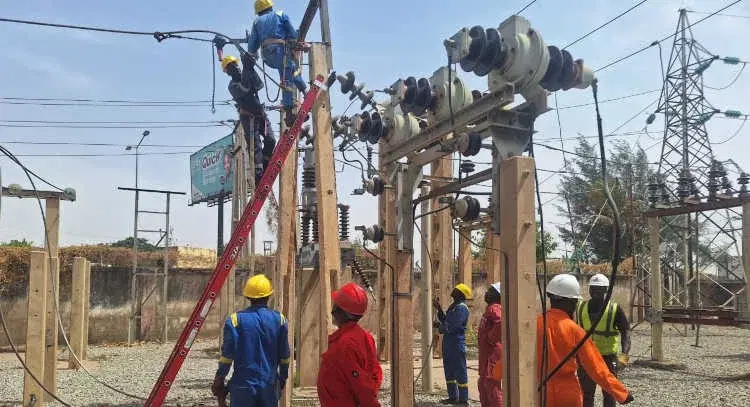Discos’ revenue rises from N810bn to N1.132trn despite consumers’ complaints

By Udeme Akpan, Obas Esiedesa & Ediri Ejoh
As complaints of continuous epileptic power supply and estimated billing system soar, the Distribution Companies of Nigeria, DISCOs, revenue increased year-on-year, YoY, by 39.7 per cent to N1.132 trillion from N810.86 billion recorded in the corresponding period of 2024.
A breakdown indicated that N178.68 billion was generated in January 2025, while N191.75 billion, N188.89 billion, N199.85 billion, N191.57 billion and N182.11 billion were generated in February, March, April, May and June 2025, respectively.
Checks by Vanguard, weekend, indicated that the development persists despite widespread complaints of consumers without adequate and stable supplies and Transmission Company of Nigeria’s inability to wheel about 16,384 megawatts, MWs, from the Generation companies, GENCOs.
The checks showed that the numbers have left many stakeholders, including consumers, puzzled and outraged, due partly to frequent outages, which worsened in 2025, while crippling businesses, especially in the manufacturing and services sectors, and forcing households to rely increasingly on expensive alternative sources like diesel and petrol generators, solar panels, and inverters.
Reacting in an interview with Vanguard, yesterday, Sunday Oduntan, managing director of the Association of Nigerian Electricity Distributors, ANED, said: “The administration of President Bola Tinubu has created an enabling environment, policies and some initiatives, leading to increased investment, generation, supply and revenue collection than in the past. These are basically why the revenue generation has increased in Nigeria’s power sector.”
Similarly, in another interview with Vanguard yesterday, Adetayo Adegbemle, the convener and Executive Director of PowerUp Nigeria, a power consumer advocacy group, stated: “We might be seeing the effects of metering, as meters executed under NERC’s Meter Acquisition Fund are now being installed.”
In his recent statement, Adegbemle, who identified subsidy as a major factor facing the sector, investment and revenue generation, said: “Historically, the Nigerian Government has been paying electricity subsidy to the Nigeria Electricity Supply Industry (NESI). This means that there is the Cost Reflective Tariff of supplying 1kWh (kilowatt hour), and the Allowed Tariff that consumers are “allowed” to pay.
“This variance, otherwise called “subsidy” has now turned into an elephant in the chinaware shop. The subsidy is as a result of Government policy consideration on welfarism, targeted at supporting the social welfare of consumers who might not be able to pay the high true cost of the service.
“Economic stability, aimed at ensuring a stable and affordable energy supply, is essential for economic development.
“The Federal Government of Nigeria, in 2020, with the introduction of Service Based Tariff (SBT), decided to phase out subsidy on electricity tariff, because of the strain it is putting on Government finances, and inefficiencies it promotes in the energy sector.
“The Minister of Finance, Budgets and National Planning under President Muhammadu Buhari, Mrs. Zainab Ahmed, had said that the Federal Government had quietly removed all subsidies in the power sector with a plan to gradually end subsidies on petrol.
“This was necessitated by the fact that payment of subsidy, both on petrol and electricity, has become an albatross on Government finances. Between 2015 and 2020, the shortfall in allowed tariff reportedly stood at about N2.4 trillion, averaging N200 billion yearly, and in 2022 alone, over N600bn has been paid in subsidies, and it has been estimated to skyrocket to at least N1trillion in 2024.”
The post Discos’ revenue rises from N810bn to N1.132trn despite consumers’ complaints appeared first on Vanguard News.







